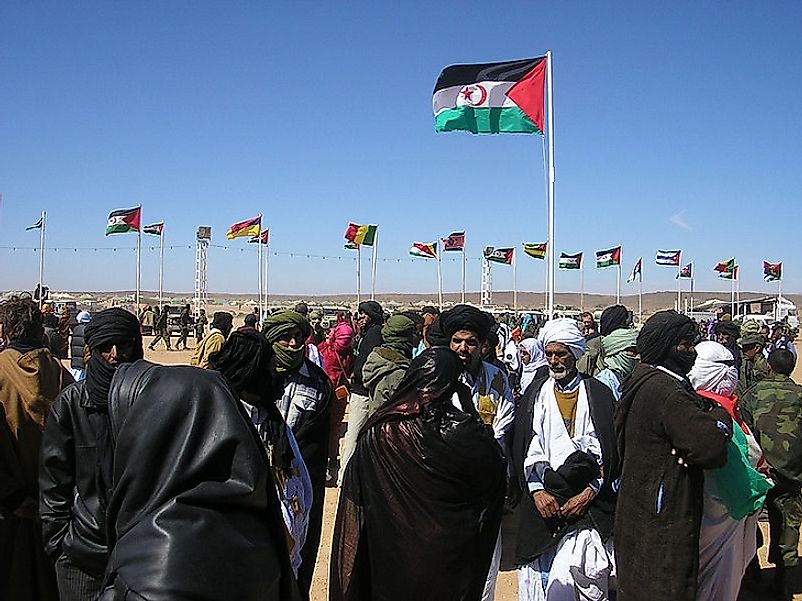What Is The Sahrawi Arab Democratic Republic (Western Sahara)?

The Sahrawi Arab Democratic (SADR), also known as the Saharan Arab Democratic Republic or Western Sahara, is a self-declared state that claims authority over the disputed territory of Western Sahara which is concurrently claimed and occupied by Morocco. The SADR was initially a Spanish colony from 1884 until 1976, and after the withdrawal of the Spanish the nomadic inhabitants declared the independence of the republic and claimed ownership of the land. They fought Morocco and Mauritania, and in 1979, they signed a peaceful agreement with the Polisario Front, which was established as a Sahrawi rebel movement that is aiming to liberate the Western Sahara from Moroccan control. As of 2016, the SADR was recognized by the 85 members of the United Nations (UN) of which 37 members withdrew their recognition. The SADR CLAIMS that Morocco is an occupied territory and the territory it occupies as liberated areas. The UN does not recognize it, but it is fully recognized by the African Union (AU). In 1982, Morocco withdrew its membership from the AU in protest and is the only African State that is not a member of the Union.
Politics of the Sahrawi Arab Democratic Republic
The office of the President is the highest office in country. The president is responsible for appointing the prime minister or premier. Brahim Ghali is the incumbent president while Abdelkader Taleb is the premier. The government consists of a council of minister led by the prime minister, a judiciary branch whose members are appointed by the president, and the parliament, which is officially titled the Sahrawi National Council. Since its establishment in 1976, the government has evolved from an ad hoc structure to a functional government. The ministries are headed by ministers and are fully functional. The judiciary is well established with trial courts, the court of appeal and the Supreme Court. Even though it is not recognized as a democratic state, the country has banned the death penalty, and in 1999, it passed a vote of no confidence which brought down the government. In 1999, SADR adopted a constitution similar to European constitutions. Even though the constitution was used to govern the territory, some clauses were suspended until full independence was achieved. The constitution recognizes the Sahrawis as Africans, Arabs, and Muslim people.
Elections and Foreign Relations
The Sahrawis in the liberated areas, as well as refugee camps in Algeria, participate in the country's democratic elections. In February of 2008, the territory held its elections for the Sahrawi National Council. In 1991, the anticipated referendum for integration for or independence from Morocco did not take place due to divergence on who should participate in the elections. The Polisario Front conducts the foreign relations of the SADR and maintains diplomatic relations with international organization and state. In 1966, the UN affirmed the right of the territory to govern itself and in 1979, it recognized the Polisario as the representative of the SADR.
Proposed Autonomy
In 2003, the UN ratified the Baker plan. The plan, created by James Baker and presented to the then-UN Secretary-General Kofi Annan, established a five-year transitional plan that would see the SADR replaced by a Western Sahara Authority (WSA). The WSA would be a non- autonomous authority supervised by Morocco and a referendum on independence would be held. Morocco rejected the plan. In 2007, Morocco proposed a self- governing entity that would govern the territory with a negotiated degree of autonomy. A stalemate ensued over the proposal, and the UN demanded that both parties seek an unconditionally and mutually accepted solution to avert a potential territorial conflict. To date, the territory is still claimed by the SADR and Morocco.







